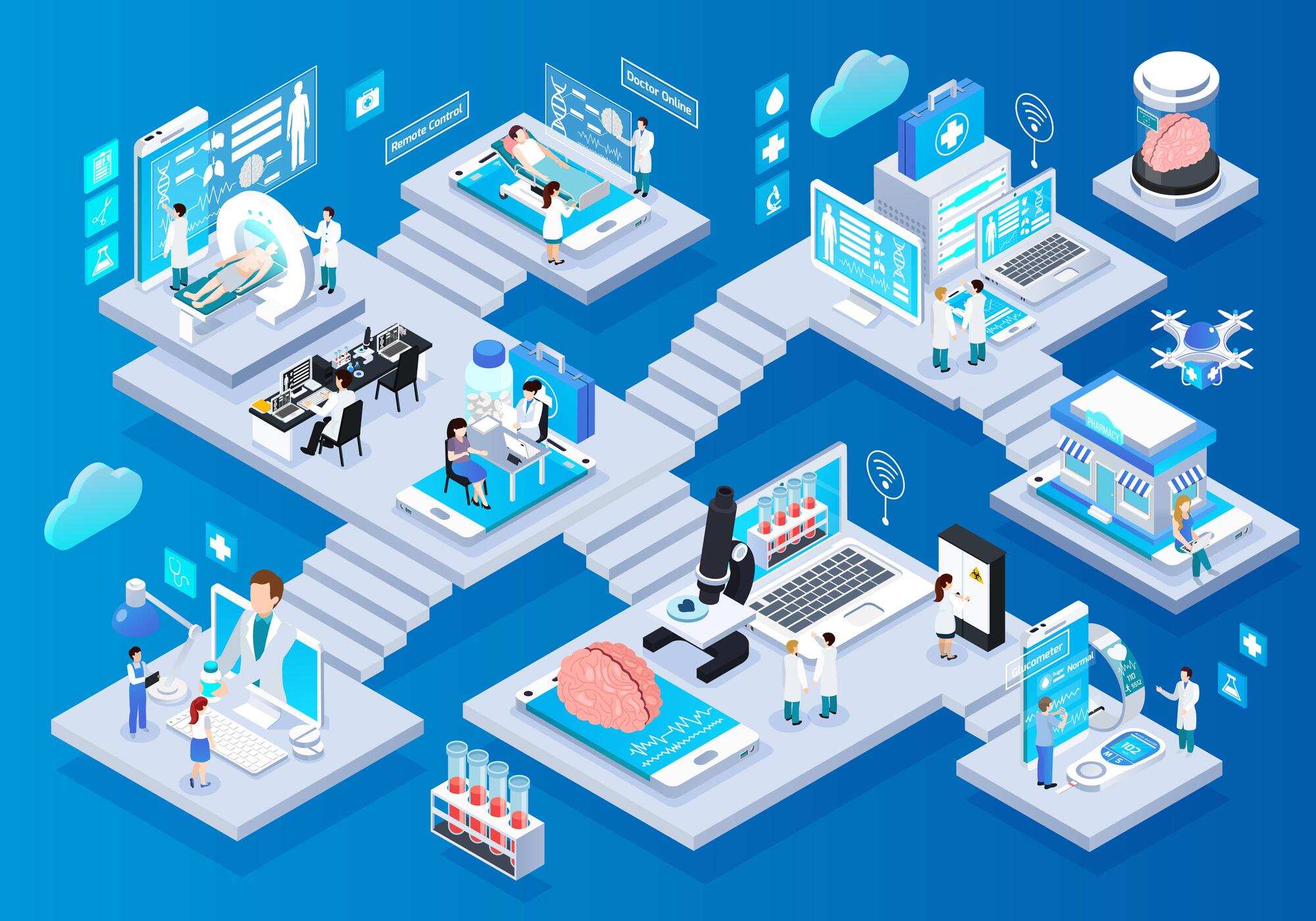In today’s rapidly changing healthcare industry, hospitals and medical centers are constantly striving to improve their efficiency and quality of care. One of the most effective ways to achieve this is by implementing a Hospital Management System (HMS). An HMS is a digital solution that helps hospitals manage and streamline their operations, including patient care, administration, billing, and reporting. In this article, we will explore the different components of an HMS and how it benefits hospitals.

Components of a Hospital Management System
- Patient Registration and Management: Patient registration and management is the first component of an HMS. This module helps hospitals manage patient information, including medical history, diagnosis, medication, and test results. It also allows hospitals to schedule appointments, manage bed allocation, and track patient movement within the hospital.
- Electronic Medical Record (EMR) Management: EMR management is another critical component of an HMS. This module provides physicians with real-time access to patient data, including medical history, diagnosis, medication, and test results. It also allows physicians to update patient records, view patient progress, and prescribe medication.
- Pharmacy Management: Pharmacy management is the third component of an HMS. This module helps hospitals manage their pharmacy operations, including medication procurement, inventory management, and dispensing. It also helps hospitals comply with regulatory requirements, including HIPAA and FDA regulations.
- Laboratory Management: Laboratory management is the fourth component of an HMS. This module helps hospitals manage their laboratory operations, including sample collection, testing, and reporting. It also allows hospitals to track sample movement and manage laboratory equipment.
- Billing and Insurance Management: Billing and insurance management is the fifth component of an HMS. This module helps hospitals manage their billing and insurance operations, including claim submission, payment processing, and denial management. It also allows hospitals to track revenue and manage cash flow.
- Reporting and Analytics: Reporting and analytics are the sixth components of an HMS. This module helps hospitals generate reports and analytics, including patient statistics, revenue analysis, and operational metrics. It also allows hospitals to identify trends and opportunities for improvement.
Benefits of a Hospital Management System
- Improved Patient Care: An HMS helps hospitals provide better patient care by providing physicians with real-time access to patient data. This allows physicians to make informed decisions and provide more personalized care to their patients.
- Enhanced Efficiency: An HMS helps hospitals streamline their operations and reduce the need for manual intervention. This, in turn, leads to improved efficiency, reduced errors, and quicker response times.
- Better Collaboration and Communication: An HMS provides a platform for physicians, nurses, and other staff members to collaborate and communicate effectively, leading to improved teamwork and better patient outcomes.
- Improved Revenue Management: An HMS helps hospitals manage their revenue by automating billing and coding processes, reducing errors, and ensuring timely payments.
- Regulatory Compliance: An HMS helps hospitals comply with various regulatory requirements, including HIPAA, Medicare, and Medicaid. This helps hospitals avoid costly fines and legal issues.
- Enhanced Patient Experience: An HMS helps hospitals provide a more personalized and seamless patient experience. Patients can access their medical records, appointments, and other information online, reducing the need for phone calls and in-person visits.
Conclusion
In conclusion, a Hospital Management System is a critical tool for hospitals and medical centers looking to improve their efficiency and quality of care. An HMS provides hospitals with a comprehensive view of patient data, streamlines operations, and helps hospitals comply with regulatory requirements. It also provides a platform for collaboration and communication, leading to improved teamwork and better patient outcomes. By investing in an HMS, hospitals can improve their efficiency, reduce errors, and provide better care to their patients.
